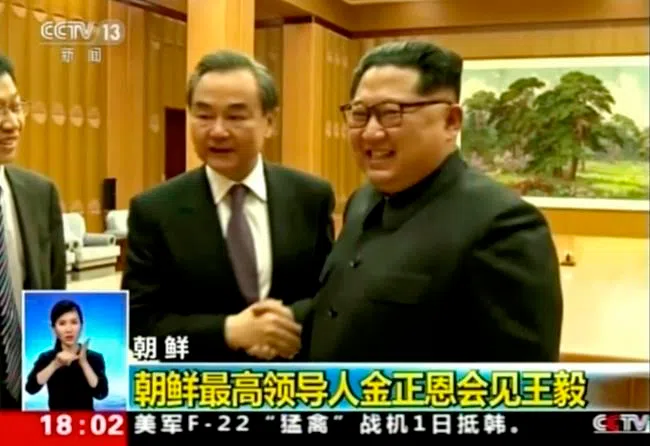
China congratulates North Korea’s Kim on reducing tensions
BEIJING — China’s foreign minister congratulated North Korean leader Kim Jong Un on Thursday on his moves to reduce tensions with South Korea, China said. Their meeting in Pyongyang underscored warming ties and Beijing’s desire to remain a key player in the Korean Peninsula peace process.
Foreign Minister Wang Yi also told Kim that Beijing backs North Korea’s shift of focus to economic growth, along with its efforts to resolve its “legitimate security concerns” while taking steps to denuclearize, China’s Foreign Ministry said in a statement.
China “supports and congratulates” Kim’s summit meeting last week with South Korean President Moon Jae-in and the statement they issued, it quoted Wang as saying.
“The meeting has brought a favourable opportunity for a political resolution of the (Korean) Peninsula issue,” Wang said.